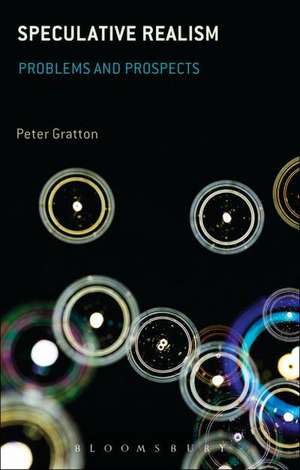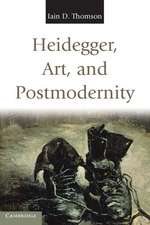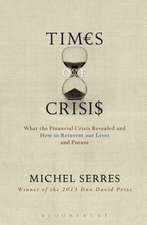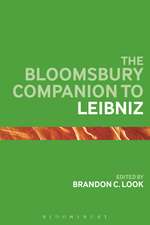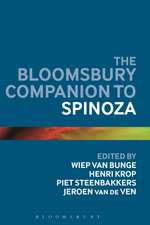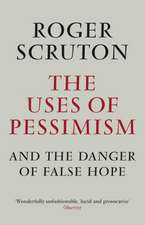Speculative Realism: Problems and Prospects
Autor Dr Peter Grattonen Limba Engleză Paperback – 31 iul 2014
This book introduces the contexts out of which speculative realism has emerged and provides an overview of the major contributors and latest developments. It guides the reader through the important questions asked by realism (what can I know? what is reality?), examining philosophy's perennial questions in new ways. The book begins with the speculative realist's critique of 'correlationism', the view that we can never reach what is real beneath our language systems, our means for perception, or our finite manner of being-in-the-world. It goes on to critically review the work of the movement's most important thinkers, including Quentin Meillassoux, Ray Brassier, and Graham Harman, but also other important writers such as Jane Bennett and Catherine Malabou whose writings delineate alternative approaches to the real. It interrogates the crucial questions these thinkers have raised and concludes with a look toward the future of speculative realism, especially as it relates to the reality of time.
| Toate formatele și edițiile | Preț | Express |
|---|---|---|
| Paperback (1) | 183.47 lei 6-8 săpt. | |
| Bloomsbury Publishing – 31 iul 2014 | 183.47 lei 6-8 săpt. | |
| Hardback (1) | 678.32 lei 6-8 săpt. | |
| Bloomsbury Publishing – 31 iul 2014 | 678.32 lei 6-8 săpt. |
Preț: 183.47 lei
Preț vechi: 224.38 lei
-18%
Puncte Express: 275
Preț estimativ în valută:
32.45€ • 38.47$ • 28.25£
32.45€ • 38.47$ • 28.25£
Carte tipărită la comandă
Livrare economică 31 martie-14 aprilie
Specificații
ISBN-13: 9781441174758
ISBN-10: 1441174753
Pagini: 272
Dimensiuni: 138 x 216 x 18 mm
Greutate: 0.32 kg
Ediția:New.
Editura: Bloomsbury Publishing
Colecția Bloomsbury Academic
Locul publicării:London, United Kingdom
ISBN-10: 1441174753
Pagini: 272
Dimensiuni: 138 x 216 x 18 mm
Greutate: 0.32 kg
Ediția:New.
Editura: Bloomsbury Publishing
Colecția Bloomsbury Academic
Locul publicării:London, United Kingdom
Cuprins
Introduction
1. Correlationism and Its Discontents
2. Meillassoux's Pivot from Correlationism to the Absolute
3. Beyond Belief: Divine Inexistence and the New Ethics
4. Object-Oriented Ontology
5. The Power of Things and the Nature of Politics
6. Ray Brassier's Transcendental Realism: Nothing (Else) Matters
7. The Transcendental Materialism of Adrian Johnston
8. Malabou's Plasticity and the Real
Time for a Conclusion
Notes
Bibliography
Index
1. Correlationism and Its Discontents
2. Meillassoux's Pivot from Correlationism to the Absolute
3. Beyond Belief: Divine Inexistence and the New Ethics
4. Object-Oriented Ontology
5. The Power of Things and the Nature of Politics
6. Ray Brassier's Transcendental Realism: Nothing (Else) Matters
7. The Transcendental Materialism of Adrian Johnston
8. Malabou's Plasticity and the Real
Time for a Conclusion
Notes
Bibliography
Index
Recenzii
In casual but compelling prose, Gratton's book brings Speculative Realism into dialogue with various other parts of contemporary philosophy and challenges central aspects of this incipient movement, which includes thinkers like Meillassoux, Brassier and Harman. Both for contextualising Speculative Realism and revealing its temporal fault-lines, Gratton's book is a must read
Whatever one thinks of the philosophical merits of speculative realism, there can be no doubt that Peter Gratton's new book provides an admirably clear and comprehensive guide to its main thinkers and ideas. No mere summary or introduction, Gratton's book also engages with its subject matter in a genuinely critical and creative fashion, offering its own take on the underlying problems at issue and an intriguing assessment of the prospects for speculative realism and the challenges it must face. For those who want to know more about this philosophical 'movement' , there can be no better place to begin.
Speculative Realism: Problems and Prospects has provided the first comprehensive introduction to the lively and fascinating world of speculative realism. Gratton expertly covers a vast swathe of contemporary thinkers in a way that will appeal to newcomers and experts alike. It is certain to shape debates in speculative realism for many years to come.
Peter Gratton provides an easily accessible and comprehensive critical overview of the work of several of the philosophers associated with the new "speculative realist" movement. This is the book to read for anyone who wants to understand the merits and also possible pitfalls of this new "direction" in continental philosophy.
Gratton's book makes its appearance at just the right time to jolt a largely comatose philosophical establishment into noticing what's going on amongst the brightest graduate students and (mostly) junior faculty. Just five years into the debate surrounding Speculative Realism, he has managed to place it in a wide philosophical context and cultural-historical perspective. Moreover, he is independent-minded and sharply critical wherever there is a danger of this emergent fashion becoming just that, or turning its back on thinkers and resources from outside its own brief history to date. Altogether a very welcome book that deserves a large readership.
Peter Gratton's Speculative Realism is destined to become the authoritative guide to recent turns in Continental philosophy toward realisms, materialisms, and naturalisms. With insight and wit, Gratton offers readers a lively, entertaining, and lucid tour of these contemporary philosophical landscapes; he adeptly situates them in relation both to the history of European philosophy as well as to Anglo-American Analytic figures and orientations. What is more, Gratton herein adds his own extremely important critical interventions to the discussions and debates surrounding speculative realism and related movements, convincingly demonstrating how and why these currents must eventually get to grips with the tricky topic of time in particular. Gratton's work is an invaluable contribution to the understanding and unfolding of early-twenty-first-century Continental philosophy.
The search for the reality of time allows us to speculate on contemporary metaphysical questions in a much more open way. It also allows us to stress that the questions that speculative realism is interested in are not Kantian or modern even but are 'timely'; they revitalize age old theorems of philosophy while opening up a speculative realist future. . Gratton offers us an apt conclusion of his thorough analysis of the speculative realist present and the unforeseen future to come.
Whatever one thinks of the philosophical merits of speculative realism, there can be no doubt that Peter Gratton's new book provides an admirably clear and comprehensive guide to its main thinkers and ideas. No mere summary or introduction, Gratton's book also engages with its subject matter in a genuinely critical and creative fashion, offering its own take on the underlying problems at issue and an intriguing assessment of the prospects for speculative realism and the challenges it must face. For those who want to know more about this philosophical 'movement' , there can be no better place to begin.
Speculative Realism: Problems and Prospects has provided the first comprehensive introduction to the lively and fascinating world of speculative realism. Gratton expertly covers a vast swathe of contemporary thinkers in a way that will appeal to newcomers and experts alike. It is certain to shape debates in speculative realism for many years to come.
Peter Gratton provides an easily accessible and comprehensive critical overview of the work of several of the philosophers associated with the new "speculative realist" movement. This is the book to read for anyone who wants to understand the merits and also possible pitfalls of this new "direction" in continental philosophy.
Gratton's book makes its appearance at just the right time to jolt a largely comatose philosophical establishment into noticing what's going on amongst the brightest graduate students and (mostly) junior faculty. Just five years into the debate surrounding Speculative Realism, he has managed to place it in a wide philosophical context and cultural-historical perspective. Moreover, he is independent-minded and sharply critical wherever there is a danger of this emergent fashion becoming just that, or turning its back on thinkers and resources from outside its own brief history to date. Altogether a very welcome book that deserves a large readership.
Peter Gratton's Speculative Realism is destined to become the authoritative guide to recent turns in Continental philosophy toward realisms, materialisms, and naturalisms. With insight and wit, Gratton offers readers a lively, entertaining, and lucid tour of these contemporary philosophical landscapes; he adeptly situates them in relation both to the history of European philosophy as well as to Anglo-American Analytic figures and orientations. What is more, Gratton herein adds his own extremely important critical interventions to the discussions and debates surrounding speculative realism and related movements, convincingly demonstrating how and why these currents must eventually get to grips with the tricky topic of time in particular. Gratton's work is an invaluable contribution to the understanding and unfolding of early-twenty-first-century Continental philosophy.
The search for the reality of time allows us to speculate on contemporary metaphysical questions in a much more open way. It also allows us to stress that the questions that speculative realism is interested in are not Kantian or modern even but are 'timely'; they revitalize age old theorems of philosophy while opening up a speculative realist future. . Gratton offers us an apt conclusion of his thorough analysis of the speculative realist present and the unforeseen future to come.
